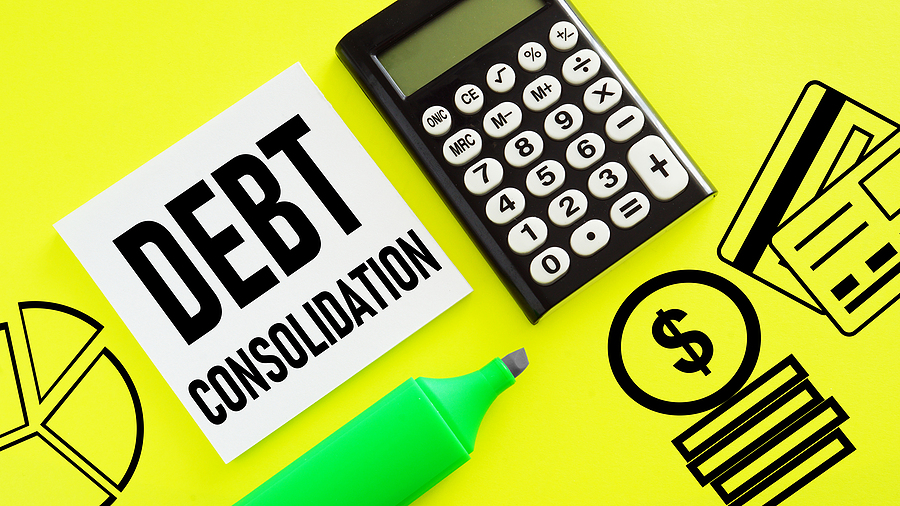If you’re struggling with multiple debts and the stress they bring, you may have considered debt consolidation as a way to simplify your finances. Debt consolidation can be a helpful tool, but it’s essential to understand both its benefits and drawbacks before making a decision. In this article, we’ll examine the pros and cons of debt consolidation to help you decide if it’s the right solution for your financial situation.
What is Debt Consolidation?
Debt consolidation is a financial strategy that can help you manage your debt more effectively. It involves combining multiple debts into a single monthly payment. Instead of making multiple payments with varying interest rates and terms, you take out a new loan to pay off all your existing debts. That way, you only need to make one payment each month.
Debt consolidation can be a useful tool for people who have multiple debts with high-interest rates. By consolidating your debts, you can simplify the repayment process and potentially save money on interest charges.
How Does Debt Consolidation Work?
The loan you take out for debt consolidation typically has a lower interest rate than your existing debts. This way, you can save money on interest and reduce your overall debt quicker. Once you’ve paid off your debts with your new loan, you only have one payment to make each month.
Debt consolidation loans can come in many forms, including personal loans, home equity loans, and balance transfer credit cards. The type of loan you choose will depend on your individual financial situation and credit score.
It’s important to note that debt consolidation is not a one-size-fits-all solution. While it can be a helpful tool for some people, it may not be the best option for everyone. Before deciding whether debt consolidation is right for you, it’s important to carefully consider your financial goals and options.
The Benefits of Debt Consolidation
One of the main benefits of debt consolidation is that it can simplify your finances. By combining multiple debts into a single payment, you can avoid the stress and confusion that can come with managing multiple bills each month.
Debt consolidation can also potentially save you money on interest charges. If you have high-interest debts, such as credit card balances, consolidating them into a loan with a lower interest rate can help you pay off your debt faster and with fewer interest charges.
Simplifying Your Finances
Debt consolidation simplifies your finances by bringing all your debts together into one payment. Instead of tracking multiple bills with different interest rates and due dates, you only need to worry about making one payment each month. This can simplify your budgeting and reduce stress from managing multiple loans.
Lower Interest Rates
The interest rate on the loan you take out for debt consolidation is usually lower than the rates on the debts you’re consolidating. Lower interest rates mean less money spent on interest over time, reducing your overall debt and saving you money in the long run.
Improved Credit Score
Debt consolidation can improve your credit score. When you consolidate high-interest debts and pay them off with a lower interest rate loan, it lowers your credit utilization ratio, which is a significant factor in calculating your credit score. A lower credit utilization ratio can significantly improve your credit score over time.
Reduced Monthly Payments
Consolidating your debts can reduce your monthly payments, meaning you’ll have more money in your pocket each month. Lower monthly payments can help with your cash flow and give you extra money to pay off your debt quicker.
Faster Debt Repayment
When you consolidate your debts, you can make payments towards one loan instead of multiple. This can help you pay off your debt faster since you’re only paying one lower interest rate. Plus, debt consolidation loans typically have a fixed term, so you know exactly when you’ll be debt-free.
The Drawbacks of Debt Consolidation
While debt consolidation can be a helpful tool, it’s important to be aware of the potential drawbacks. One of the main drawbacks is that it can be difficult to qualify for a debt consolidation loan if you have a low credit score or a high debt-to-income ratio.
Potential for Higher Overall Costs
While debt consolidation loans can have lower interest rates, they often come with additional fees and charges. These additional costs can add up and result in paying more overall than you would have paid on your original loans.
Longer Repayment Period
Debt consolidation loans typically have longer repayment periods than the original loans. While you may have a lower interest rate and lower monthly payments, you’ll be making payments for a longer time, resulting in paying more in interest over time.
Risk of Losing Collateral
Depending on the type of debt consolidation loan you get, it may require collateral, such as your home or car. If you fail to make payments on your loan, you risk losing the collateral you put up. Before taking out a debt consolidation loan that requires collateral, make sure you can afford the payments and understand the potential consequences of default.
The Temptation to Accumulate More Debt
After consolidating your debts, it’s essential to avoid accumulating more debt. It can be tempting to use available credit since your monthly payments have been reduced, but doing so could negate the benefits of debt consolidation and make it more challenging to become debt-free.
Impact on Credit Score
Consolidating your debts can have a temporary negative impact on your credit score. Applying for a loan and opening a new credit account can cause a temporary dip in your credit score. However, with responsible payments, your credit score should improve over time.
Final Thoughts
Debt consolidation can be a useful tool for simplifying your finances, reducing monthly payments, and paying off debt faster. However, it’s essential to weigh the pros and cons carefully before making a decision. Consider your individual situation, your goals, and your ability to make payments before deciding to consolidate your debts.

